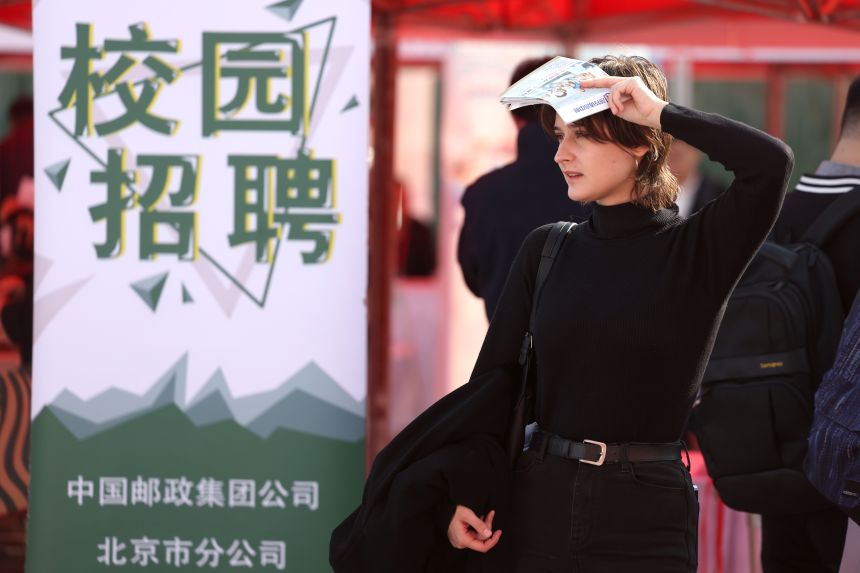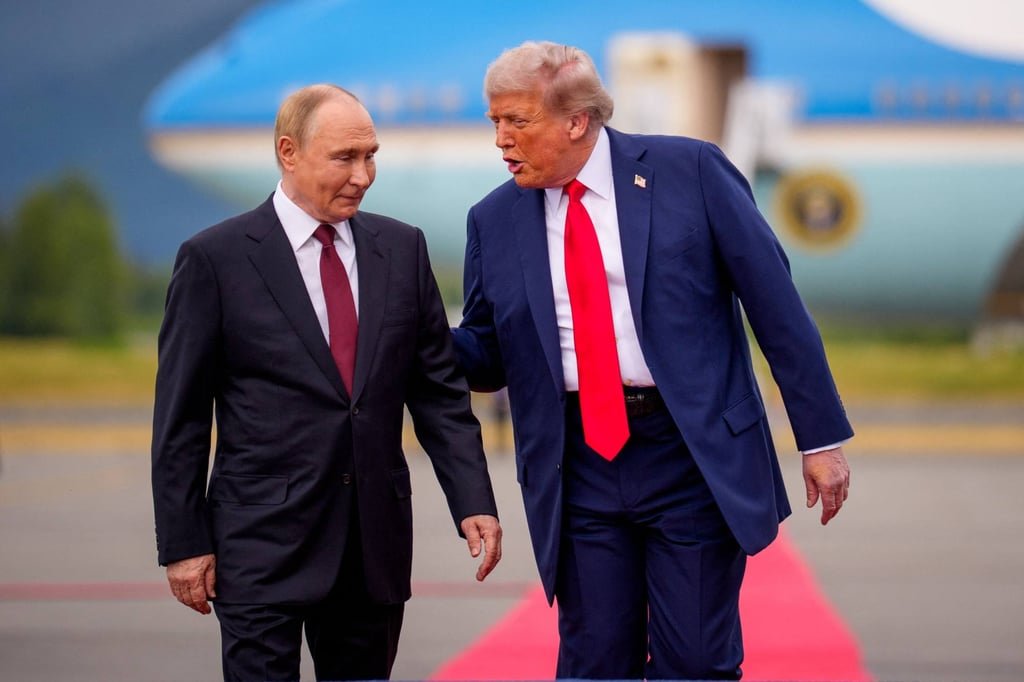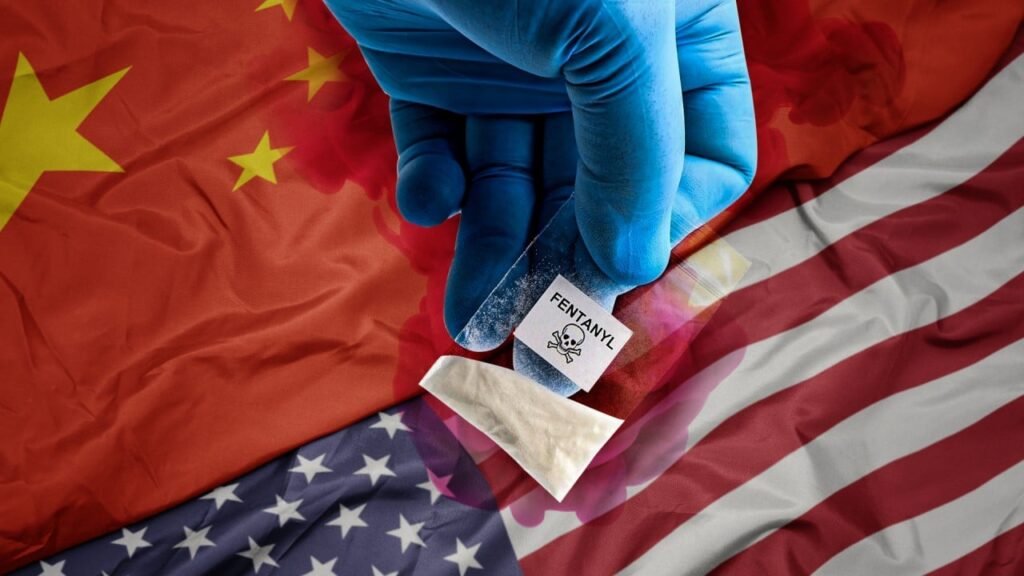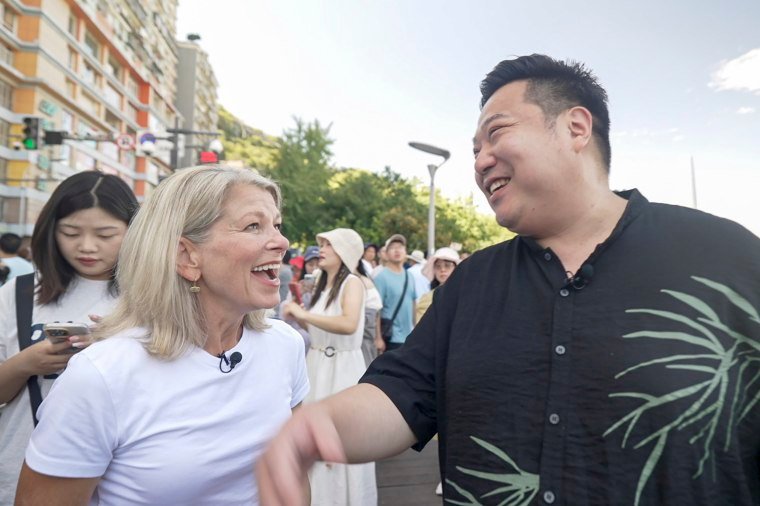A new visa category launched by the Chinese government to attract young science and technology professionals is causing fervent backlash in China, where well-educated young people are already struggling to find work.
The new “K-visa,” launched October 1, has been touted by Chinese officials as a boon for the country’s development – and widely seen as a part of Beijing’s bid to gain an edge in its technology rivalry with the US as President Donald Trump pushes to slash federal funding for research and tightens restrictions on international students and workers.
But many voices across China have made clear they have a different view.
Discussion of the K-visa category has dominated social media discussion in recent days, where top-trending hashtags related to the visa have reached roughly half a billion views in the space of two days.
Many voices pointed to deep-seated challenges faced by young jobseekers in China, where youth unemployment hovers close to 19% and a record 12.2 million new college graduates are competing for jobs in a tough economy.
“There are so many (master’s degree holders) here struggling to find jobs, and you are looking to bring in more talent (from overseas)?” read one comment on social media that garnered thousands of likes.
Some commentators reflected nationalist and xenophobic views within the country, with one wondering about the “endless consequences” of potentially expanding immigration. Nationalism has thrived under Chinese leader Xi Jinping, including on China’s tightly regulated social media platforms where moderate voices have been marginalized and online discourse can turn ugly when discussing foreigners.
Other commentators questioned whether applicants would be held to high enough standards.
“While the intention to attract talent is good, isn’t a bachelor’s degree a bit too easy? … Honestly, we’ve got plenty of talent here already, so I don’t really get it,” wrote another.
Beijing has yet to provide full requirements for the visa, which – despite the October 1 launch date – did not appear to be available for application as of Wednesday, according to a CNN check of several Chinese embassy websites globally. China is currently observing an eight-day business holiday.
Officials earlier said applicants would need a bachelor’s degree or above in science, technology, engineering, or mathematics from renowned universities or research institutions in China or abroad or be engaged in relevant professional education or research at such institutions.
China’s K-visa and the US’ H1-B
Unlike with the US’ H1-B visa program for skilled foreign workers, applicants for China’s K-visa would not need to have an employer or inviting organization in China before applying.
An overhaul of the H1-B program announced by the Trump administration last month has placed a greater spotlight on China’s new visa category.
The changes impose a $100,000 application fee for new H-1B visas – upending plans of professionals and students from around the world who have focused on pursuing education and careers in the US, the nation long seen as the global hub for innovation.
While China’s K-visa was announced weeks before the US move, the new category appears as a signal from Beijing to the world that as the US is closing its doors, China will open them more widely, including to foreign students already in the country.
Communist Party mouthpiece People’s Daily on Tuesday alluded to that point in an editorial that aimed to tamp down on the widespread backlash to the initiative.
“Amidst a backdrop of some countries tightening borders and sidelining international talent, China has astutely seized this important opportunity and promptly enacted policies that will undoubtedly have a profound impact on our future development,” the editorial said.

“However, some people have misinterpreted and misunderstood the policy, spreading bizarre theories that mislead the public and create unnecessary anxiety.”
China’s leaders have long aimed to recruit high-level talent to their research institutions as they vie to establish the country as a tech and science powerhouse – a goal that’s become even more critical as China is under pressure to innovate in the face of American export controls on high-tech.
China has an existing R-visa category for “foreigner of high talent or specialists urgently needed by the State.”
When asked about the changes to the US H1-B program last month, a spokesperson for China’s Foreign Ministry declined to comment on the US policy, saying instead that China “welcomes talents from various sectors and fields across the world to come and find their footing in China for the progress of humanity and career success.”
But the K-visa backlash highlights how these ambitions are butting up against economic insecurities and nationalist views within a country that has fewer than 1 million foreign residents.
The common thread underlying most discussion has been a concern that welcoming overseas talent will disadvantage those from China who are already struggling – a debate not unlike the one driving changes to the H1-B in the United States.
Some discussion on Chinese social media in recent days has also reflected a bias against potential Indian applicants to the K-visa. Indian professionals hold the largest share of H1-B visas in the US.
The People’s Daily editorial said that the K-visa “should not be equated with immigration,” but rather was designed to “facilitate the work and life of young foreign talent in China.”
China’s youth unemployment rate hit 18.9% in August, the highest since December 2023, when the country began releasing the figure following a pause as it changed its methodology. About half of China’s graduates across all levels of higher education between 2012 and 2022 hold STEM degrees, according to official data cited by Chinese researchers – amounting to a talent pool of some 24 million people.
Hu Xijin, a Chinese pundit and former editor-in-chief of the state-run tabloid Global Times on Wednesday called the K-visa a test of China’s “execution capabilities” in terms of selecting recipients and said it must come alongside job creation in China.
“The real issue at the heart of the K-visa controversy is that it reflects the tension in the domestic job market and the anxiety young people face in finding employment,” Hu wrote on his official Weibo account.
“Improving the domestic employment rate, especially in terms of high-quality jobs, is crucial for governance at this moment.”







